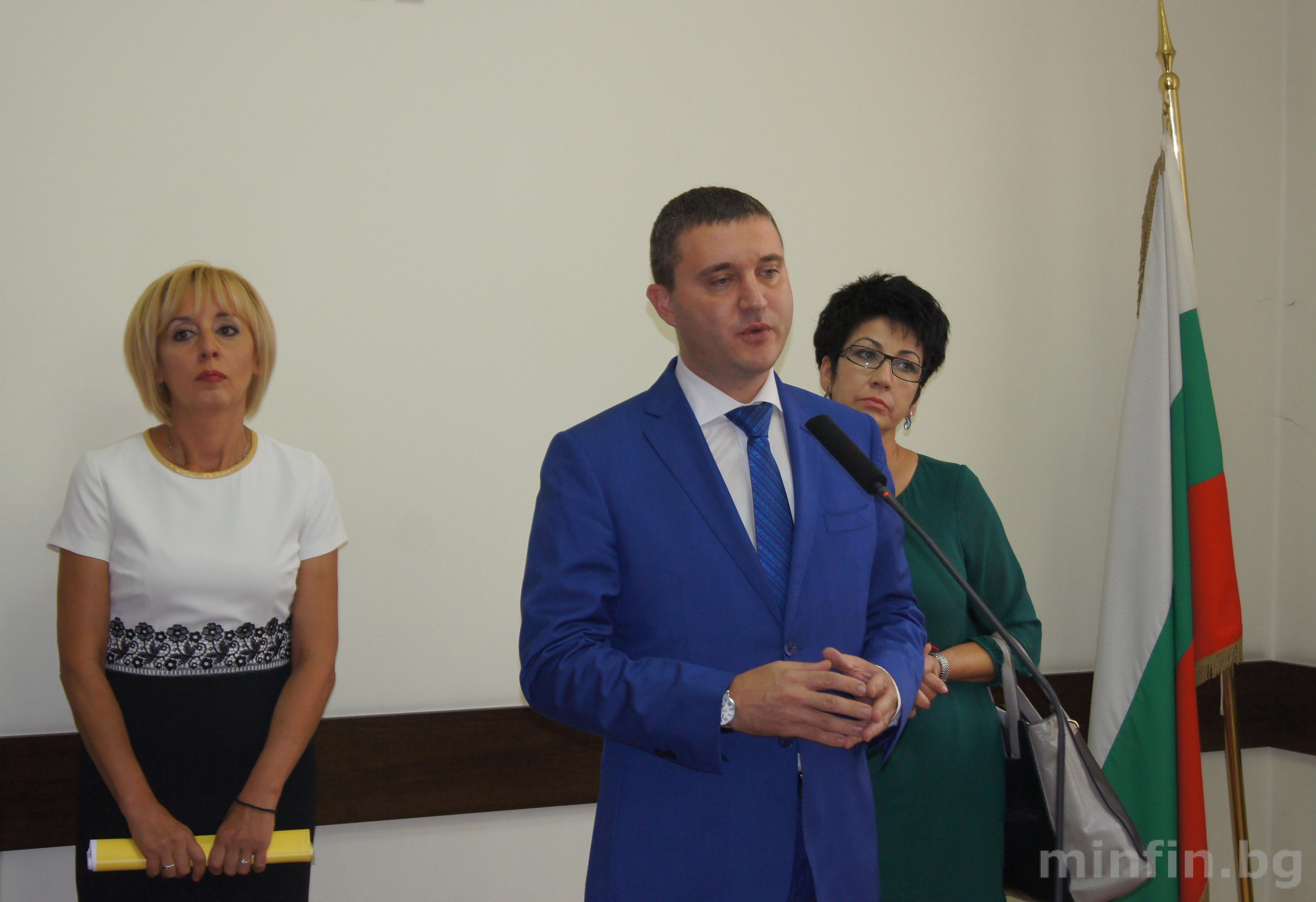VLADISLAV GORANOV: WE PROPOSE A CLEAR MECHANISM FOR FOOD BANKING AND CONTROL OVER DONATED FOOD

19.09.2016
"At the meeting today we presented the bill drawn by the Ministry of Finance, which will supplement the law adopted at first reading that precisely regulates the mechanism for the establishment of a food bank, its operation and the relationships between it and food producers and traders, as well as the control over donated food. These are clearly defined rules of law on the practical implementation of food banking", Minister of Finance Vladislav Goranov said at the briefing after his meeting with Ombudsman Maya Manolova on VAT exemption of donated food, attended by Minister of Agriculture and Food Desislava Taneva, representatives of the BFSA, the Bulgarian Food Bank, the Bulgarian Red Cross, food producers and other interested non-governmental organisations.
Minister Goranov briefly described the mechanism to be proposed to the Members of Parliament. Together with the Minister of Agriculture and Food, the Minister of Health is to set up a list of the types of food that may be donated and the time frame in which the donation can be made. The food bank will receive the donations and will allocate them to the entities that are most in need - this will be regulated by the Minister of Labour and Social Policy in a special list of institutions and social establishments.
"The food bank must ensure that quality food is donated as well as that it reaches the entities in need; for this reason the requirements which we have laid down in the bill are quite serious", the Finance Minister commented. A food bank may only be created if it covers at least 30% of the country's territory; the accountability systems needed to control the quality of food have been identified, etc. The food bank is planned to be a non-profit legal entity and it will be the point where the BFSA and the National Revenue Agency will exercise control. Food quality control will remain as it is in the current legislation and the state will not make any compromise with the quality of donated food, the participants in the meeting said categorically. "All control procedures that are now implemented by the BFSA in regard to the sites registered under the Food Law will be preserved and will be also applied to food banks", Goranov added. To a question about the estimates for the effect of this tax relief Minister Goranov said that the estimates for a potential budget loss, in case donated food reached 0.5% of the total turnover of tradable food, were for BGN 7 - 8 million, which was admissible and the budget could afford it.
Ombudsman Maya Manolova thanked all the persons who have made efforts the legislative decision to come into being and stressed that "what Minister Goranov did for the hungry people is invaluable". She commented that donation of food was a cause that had been fought for for over 10 years, and pointed out that food from restaurants, buffets and ready food from hypermarkets could not benefit from that tax relief. Such food may also be donated; the Ombudsman presented to the media its other initiative for donation of the left-overs already cooked by restaurants and shops, which will be implemented with the assistance of the Bulgarian Orthodox Church.
On the topical issue of the changes in the tax laws, submitted for public consultation by the Ministry of Finance, in particular on the excise duty on tobacco products, Minister Vladislav Goranov pointed out that the analyses of the implementation of the modified structure of the excise duty had shown that "there is quite aggressive market behaviour on behalf of certain cigarette traders, which threatens the whole market of tobacco products". He said that he had meetings with cigarette manufacturers and traders who almost unanimously shared the view that the old version was better. "With these amendments we react flexibly to what is best for the market", the Finance Minister said and pointed out that there was no way cigarettes to become cheaper because the total excise duty rate was increasing and the price of cigarettes would slowly, with varying weight on the cheaper and the more expensive cigarettes, and sustainably rise by 2018.